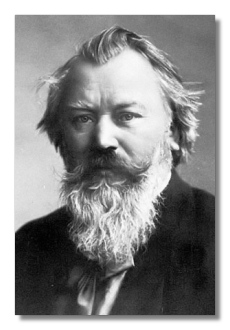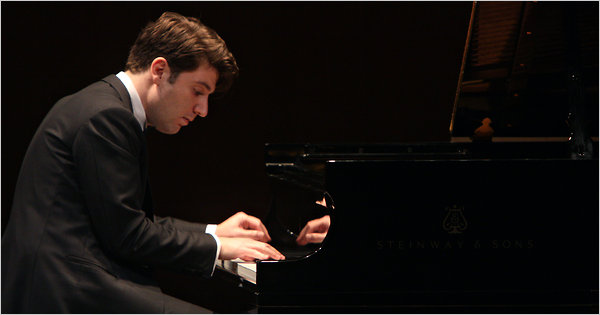It takes effort to translate a printed score into music. It’s not just the physical effort of playing (or singing) the notes, but the mental effort of giving the sound shape and motion. With composers like Bach and Brahms just to name two, it takes more effort than average. But potential rewards are huge.
- Classical Music 101: What Does A Conductor Do? - June 17, 2019
- Classical Music 101 | What Does Period Instrument Mean? - May 6, 2019
- CLASSICAL MUSIC 101 | What Does It Mean To Be In Tune? - April 23, 2019
Italian pianist Alessio Bax, one of the great younger artists of our time, gives us the whole package in some particularly hard-to-shape piano music by Johannes Brahms.
These little musical whirlpools have sent more than one otherwise great pianist spinning haplessly. Many people play the music nicely. But very, very few give it the clear sense of purpose that emerges from Bax’s fleet fingers.
This album, released on the Signum label, is a must-listen for any fan of late-Romantic piano music. This is one of the great solo-piano albums of 2012. It’s as simple as that.
 Bax’s choice of pieces makes up a substantial, 75-minute recital programme, starting with the Four Ballades, Op. 10, written when Brahms was a sensitive 21-year-old recovering from the near-suicide of his friend Robert Schumann.
Bax’s choice of pieces makes up a substantial, 75-minute recital programme, starting with the Four Ballades, Op. 10, written when Brahms was a sensitive 21-year-old recovering from the near-suicide of his friend Robert Schumann.
These are followed by the seriously introspective Eight Piano Pieces, Op. 76, by a middle-aged composer who is working hard at the creative reuse of simple musical figures, moving around dense layers of counterpoint and strange, viscerally satisfying harmonic shifts. These pieces are the true test of a pianist’s mix of intellect and vision. Bax’s results are so clear-headed as to make the music sound completely fresh.
Then comes the test of the virtuoso pianist: Brahms’s two books of Variations on a Theme of Paganini, Op. 35, written by a young man still intent on showing off a little bit.
It is one of the few sets of variations (including Bach’s Goldbergs) based on the harmonic structure of the original theme rather than a simple melody. Each is a test of a particular composition skill as well as the outermost limits of a pianist’s technical abilities.
Bax plays these pieces with the ease and exuberance and good nature of a teenager playing beach volleyball on a clear, hot day. He is at once brilliant and gentle, driven and able to take a moment’s break to smile and enjoy the shimmer of sunlight on the water’s surface.
The encore is Bax’s own gilded take on late virtuoso pianist Georges Cziffra’s transcription of Brahms’s Hungarian Dance No. 5.
For all the details, click here.
And here is the promotional video for the album:
John Terauds
- Classical Music 101: What Does A Conductor Do? - June 17, 2019
- Classical Music 101 | What Does Period Instrument Mean? - May 6, 2019
- CLASSICAL MUSIC 101 | What Does It Mean To Be In Tune? - April 23, 2019




